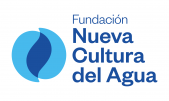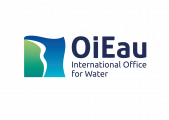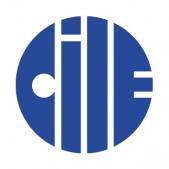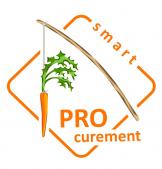Partners
-
SYNDICAT DES EAUX ET DE L'ASSAINISSEMENT ALSACE-MOSELLE
The SDEA is a “syndicat mixte”, an authority associating municipalities and inter-municipal cooperation bodies, the Urban Community of Strasbourg and the Bas-Rhin department, the French subnational authority between region and municipality. It was created more than 75 years ago by local representatives who were concerned to share their means in order to ensure a public service in the field of drinking water supply and wastewater management. More recently, the SDEA takes also part in the aquatic environment management.
Overall, the SDEA operates on behalf of almost 500 municipalities and 850,000 inhabitants in the Region of Alsace-Moselle with a budget of 200 million of euros in 2014 and employing 550 people.
The members of the SDEA transfer all or part of their competence regarding the management of:
- water i.e. drinking water production,
- transport and supply, wastewater and rainwater collection and treatment,
- aquatic environment, flood and soil erosion prevention.
The meter reading is annual. 70% of our 180 000 meters are radio-reading (Walk-by technology). SDEA is looking for a smart metering technology which can transmit data once or twice per day with an open technology. This technology could:
- reduce leaks,
- inform (and maybe warn) customers in case of overconsumption,
- bill only real consumption (and not based on a statistic of consumption).
-
FUNDACIÓN NUEVA CULTURA DEL AGUA
The Fundación Nueva Cultura del Agua (FNCA) is an Iberian (Spain and Portugal) non-profit organization composed of over 200 members from academia, research institutions, public administration, private sector, stakeholders and citizens, whose goal is to promote a more sustainable water management.
The FNCA seeks the application of inter and trans-disciplinary approaches, the integration of ecological, economic, social and cultural dimensions, an improved water governance and citizen participation and a wide cross-collaboration among researchers, stakeholders, decision-makers and the public opinion.
The FNCA profile perfectly matches with its role in this proposal regarding the assessment of the project impact, the maximization of the social and environmental benefits achieved by the project and the active involvement of stakeholders. On one hand, the FNCA team has a long research experience on the urban water cycle, the use of open data and citizen participation for better water governance, the application of water indicators and the involvement of local governments in integrated water resources management. On the other hand, the FNCA has a wide network of collaborations with NGOs and citizen networks regarding participatory processes in water issues.
-
Office International de l'Eau
Office International de l’Eau (OIEau) is an independent non-profit-making organization whose principal aim is to develop skills for improving water and river management. OIEau’s main areas of activity are :
- Continuous Education and Training of water utilities and administration staff (>5,000 trainees – professionals, supervisors, operators, decision-makers – par year)
- Documentation and information concerning water, including through Coordination and Support Actions in France and in Europe.
- Facilitation of networks of water stakeholders
- Institutional development for water management (e.g. European twinnings with candidate or neighbouring countries, support to Basin Organisations worldwide)
- Management of water data (SANDRE, the French water data standardization and interoperability structure)
OIEau is supported by 149 partner organisations (administrations, catchment organisations, municipalities, universities, professional associations, water utilities, NGOs, ...), including 32 foreign.
It has a total workforce of 113 persons, and can mobilise 250 external experts.
Its annual turn-over is 13.5 MEuros (2015).
-
Aragon Partners
Aragon Partners is a management consulting firm. The name, emphasizing the underpinned values, comes from “aragonite”, the raw material whereby oysters generate and grow pearls over time.
Aragon Partners was born in 2005 on the initiative of a team of Partners and Associate Partners coming from PricewaterhouseCoopers Consulting (PwC).
We are a team of about 20 people based in Italy with two offices, Rome and Milan.
Beside its offering in business consulting services (Business Process Re-engineering, organization, IT supporting systems, Program Management Office of complex and large projects), Aragon Partners is leader on some niche market sector requiring very specialist skills:
- Advisory services on machine to machine solutions, i,e. utility services
- Automated Meter Reading (AMR) or Automated Meter Management (AMM).
- Advisory services on Smart metering and smart city solutions
- Definition and delivery of Logic Models implemented as IT tools to support
- financial planning and decision of company top management.
-
COMPAGNIE INTERCOMMUNALE LIEGEOISE DES EAUX
CILE (Compagnie Intercommunale Liégeoise des Eaux) is the second biggest public operator in Wallonia in charge of the production and distribution of drinking water for about 600.000 people living in the 24 municipalities constituting the company.
The individualization of the consumption is one of the multiple obligations of the distributor of water in this Region. So more than 250.000 meters are now in place and the reading is annual either by a manual control either by transmission of the information by the consumer himself.
By using a smart metering technology, it would be probably possible to reduce the unrecorded volumes and the leaks thanks to a continuous management of the distribution networks: Moreover, it would offer a better service to the consumer by informing him for an abnormal consumption. And finally it would allow to protect the local network of the company from a reverse flow (by transmitting this information to the general dispatching service and/or coupling the meter with an automatic valve).
-
Aqua Publica Europea
Aqua Publica Europea (APE) is a Belgium-based non-profit international association that brings together public utilities and their regional and national associations from different European countries. Overall, its members provide water and sanitation services to over 70 million European citizens, from densely-populated to rural and remote areas, and from the North Sea to the Mediterranean.
APE’s main objective is to promote technological cooperation and the exchange of best practices among its members, with a view to enhancing their industrial performance and the quality of the services they provide to end users.
-
Budapest Waterworks
Budapest Waterworks has been created in 1868 and this water utility company is now serving 2,3 million customers in the Hungarian capital – the 9th biggest city of Europe – and several settlements in the agglomeration of the city. Apart of water extraction, distribution and supply, there are several sewage treatment plants in the portfolio of the company. The ownership is distributed among the served municipalities, with a vast majority of Budapest.
The water supply is based on 740 river bank filtration wells along the river Danube. The water distribution is ensured through a 5.200 km long network that is split into more than 90 pressure zones. The production capacity reaches 1 million m3 per day, the annual water supply is more than 16 million m3. The customer portfolio covers 260.000 connections with main meters and more than a million sub-meters that belong to the accounting base. One of the main achievements of the company is the reduction and maintenance of non-revenue water below 16%.
Apart of serving the customer base with outstanding quality water, the company is active on external markets with improvement of operational processes (e.g. network management, non-revenue water optimization), managing construction activities (e.g. water treatment plants) and other water engineering activities. Budapest Waterworks is actively participating in the activities of several local and international organisations.
Research and development activities focus supply network management, pressure management, loss management / NRW-reduction, mobile water treatment. Relevant employees are regularly taking part on conferences, seminars and trainings. The company participates in several R&D&I project calls of the EU, among others the AquaNES consortium.
-
Eau de paris
Created in 2010, Eau de Paris is the public company responsible for the production and distribution of water in Paris. Eau de Paris is the unique interlocutor for users and subscribers and manages the entire water circuit, from collection to consumer tap. It also guarantees the quality and pressure of water.
Eau de Paris collects, transports, treats and distributes an average of 483,000 m³ of drinking water each day to 3 million users. It manages customer relations and raises awareness among the general public on water issues. It seeks to maintain its heritage and keep itself at the forefront of research. It also offers companies and local authorities alternatives to drinking water via non-potable water supply.
The intra-urban drinking water system in Paris represents 2000 km of pipes, 70% of which is on the right bank of the Seine and 30% on the left bank. 95% of drinking water pipes are in sewers or galleries and can be visited by foot.
The unique structure of this network as well as the various annual inspections of the pipelines make it possible to detect and repair very quickly the detected leaks. Paris has thus one of the best drinking water systems in France with an efficiency of more than 92%.
-
Vivaqua
VIVAQUA (public company legally acting on behalf of HYDROBRU (1) for the services of water distribution and sewerage in Brussels until the merger by absorption in 31st December 2016 - where all activities only depend of VIVAQUA) is one of the main Belgian intermunicipal associations involved in the production and distribution of drinking water.
VIVAQUA is a cooperative company with limited liability owned by 23 cities and towns and one intermunicipal association.
Covered activities are the development and operation of drinking water abstraction, treatment, supply, storage and distribution services and installations.
It employs roughly 1,500 people.
The flood protection is managed in collaboration with the SBGE, the Brussels public urban wastewater treatment company.
VIVAQUA carries out studies, research, development and construction of drinking water and sewage networks.
Beside activities in the Brussels Region, VIVAQUA operates in the North Region (Flemish) and in the South Region (Walloon).
In the Brussels Region, we currently have 339,126 traditional meters for 1,175,173 inhabitants and 625,105 housing. 2/3 meters serve several households. Indeed, in the Region, the buildings are usually old and only 1/3 of the households has its own meter.
It is also common that households and small businesses share a same meter. 2/3 housing share meters which is an obstacle for the development of a responsible consumption. In 2015, the "typical" household (2 people) having its own meter consumes 30-35 m³/pers./year. The “typical” household delivered by a shared meter consumes 40 m³/pers./year. The meter reading is annual. HYDROBRU is looking for a smart metering technology which can transmit data once or twice per day. Thanks to that daily reading, we would be able to:
- reduce the unrecorded volumes, for instance, detecting leaks (13 % in 2015);
- warn consumers of high consumptions, repair quickly any potential water leak
- and adapt the interim invoices;
- reduce the number of unpaid invoice (€ 656,343 of bad debts in 2015).
(1) HYDROBRU (Brussels water distribution and sewerage inter municipality) is a cooperative company owned exclusively by the 19 municipalities of Brussels. The Brussels Intercommunal authority manages the drinking water supply network and sewage network.
-
Université de Limoges
XLIM is a public research laboratory which belongs at the same time to the CNRS and to the University of Limoges (UMR 7252). XLIM gathers approximately 400 peoples (180 Ph-D students and post-docs) distributed in axis.
People concerned by the present project belong to the team named RESYST (Réseaux et Systèmes de Télécommunications) of the research axis SRI (Systèmes et Réseaux Intelligents). The core activity of RESYST is to study and optimize digital transmission systems taking into account physical characteristics of propagation channel and component specificities. The members of this team aim at proposing and testing digital signal processing algorithms to approach the theoretical capacity of studied channels. A classic example consists in allocating transmit resources such as power, modulation scheme, pre-coder…, taking into account the channel quality with a feedback link from receiver to transmitter.
Among the high number of application fields they already investigated, one can cite for example cellular radio-communication systems such as LTE-4G, robust consumption information gathering for smart grid application, high rate optical links and remote monitoring of sick patients. Apart from the physical layer, they are getting involved more and more in the study of higher network layers with new coding techniques such as fountain coding or network coding. Particularly, they have recently worked on the optimization of the MAC layer of electrical distribution networks through the study of different coding schemes. That is why they are particularly interested in new fields of investigation such as smart metering for water distribution networks in order to bring their expertise.
-
Promedio
PROMEDIO, Environmental Management Consortium of the Provincial Government of Badajoz, was created in order to implement strategic planning in the mid/long-term for contributing to sustainable development of the province, giving high-quality response to immediate and future environmental needs.
PROMEDIO provides its services to towns under 20,000 inhabitants, which means the 93% of the towns in the area, with a total population of 372,000, more than the 50% of the provincial total, on an area, and here is the challenge, of 21,766 km2.
Therefore, PROMEDIO is created with the aim of establishing itself as a municipal manager of those services concerning the environment, both urban and rural, with emphasis on those activities related both to the Integrated Water Cycle (collection, purification, distribution and Wastewater Treatment) and with the complete cycle of collection and transportation of all types of waste, Municipal Solid Waste (MSW) from all of its members.
PROMEDIO serves 176 local entities in the province of Badajoz, in 3 different areas:
- Special Services: collection of worn out furniture, electrical appliances and other household items or spent batteries, as well as dumpster washing or removing of blockages in public pipes.
- Municipal solid waste (MSW) management: since 2010 we manage the MSW collection (daily collecting of organic garbage and weekly collecting of used paper) and treatment in the province of Badajoz. The system is based on a intermunicipal model: all municipalities share dustcarts, fuel cost, staff... and every user pays the same for the service, without considering where they live. Last year PROMEDIO collected over 1 ton of used packaging and 2 tons of used paper in 75 municipalities, with a total population of 160,000.
- Integral Water Cycle (IWC) management: this service includes Drinking Water Supply and the Sewage Control Department, which was established in 2007 and currently it manages a total of 50 Wastewater Treatment Plants (WWTP) and 9 Water pumping Stations, which provide services to around fifty municipalities of the region and a total population of 180.000.
- Regarding the Drinking Water Supply department, we manage 7 Drinking Water Treatment Plants (DWTP), almost 80.000 inhabitants get clean water treated by PROMEDIO in 28 towns. Two facts make the proposal specially interesting for us: 100% of our meters are implemented into single family homes and they are spread on an area of 21,766 km2.
-
Viveracqua
VIVERACQUA is a consortium of 12 Water Utility Company of the Veneto Region (Italy). It is a Public Equivalent Body established in 2011 that plays an overarching role to jointly manage part of their activities in the integrated water management.
VIVERACQUA covers all the Veneto Region area and manages a catchment area of 530 municipalities and 4.2 million inhabitants, with revenues of over 680 million Euros per year and plans for investment over the next 20 years estimated around 4 billion euro .
VIVERACQUA is central to the sustainability of water resources in the region. In fact, its main objective is to reduce the final cost paid by users of the integrated water service, increase the quality of service and the environmental sustainability of the operations and water resources. In this context, research activities are performed to advance the quality of the service and the conservation of water. -
SARA BEDIN
BEDIN SARA, individual SME, natural person. Graduated in Economics at the Bocconi University in Milan, Sara Bedin is working in
implementing the innovation procurement strategy in Europe. Since 2007 she has been working to introduce pre-commercial public procurement (PCP) into the Italian research and innovation policy framework as well as to contextualize the European model within the existing Italian exemption from procurement law and ICT regulations.She has also supported, as independent expert, the Italian Government to carry out PCPs within the broader reform plan of incentives for applied research and innovation. She has assisted and she is actively supporting major European public sector entities (policy makers and public procurers) for the concrete implementation of innovation procurement strategies and she is the Lombardy Regional Authority advisor for the PCP strategy design and implementation.
She is also involved in several EU-funded project finalized to create practical impact on the use of PCP&PPI and to strengthen forward looking procurement strategies.
As PCP specialist she’s a member of the European Assistance for Innovation Procurement initiative aimed promote PCP and PPI across the Member States. She has developed a research for EC-DG Connect, measuring the impact of PCP across Europe compared to other procurement approaches. She is recognized, at EU level, as one of the leading authorities in PCP methodology and implementation. Sara Bedin is an executive board member of EuroCloud Italy, aimed to promote open standard in IT sector, qualifying the demand and the offer side towards cloud computing.










 This project has received funding from the European Union’s Horizon 2020 research and innovation programme under grant agreement No 731996.
This project has received funding from the European Union’s Horizon 2020 research and innovation programme under grant agreement No 731996.